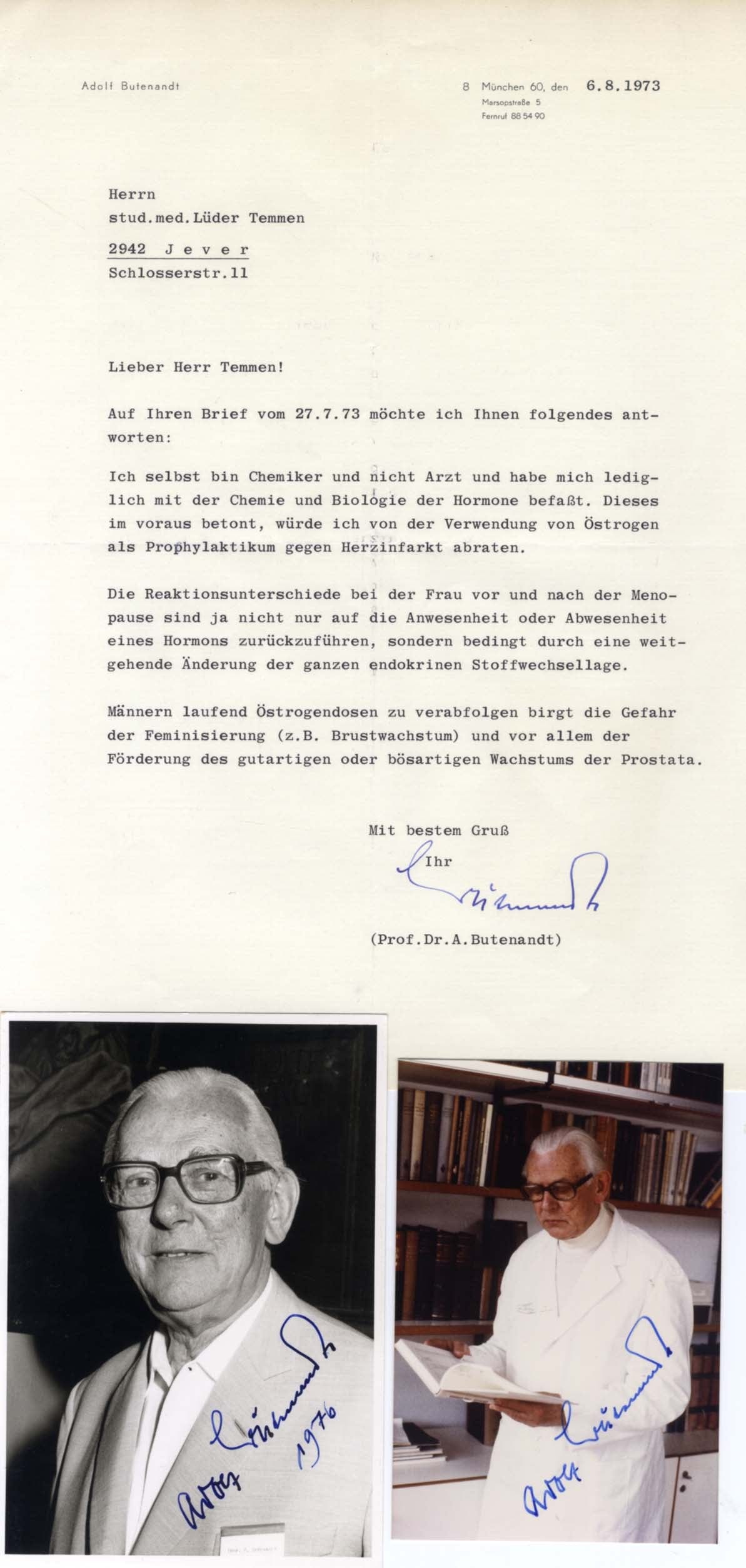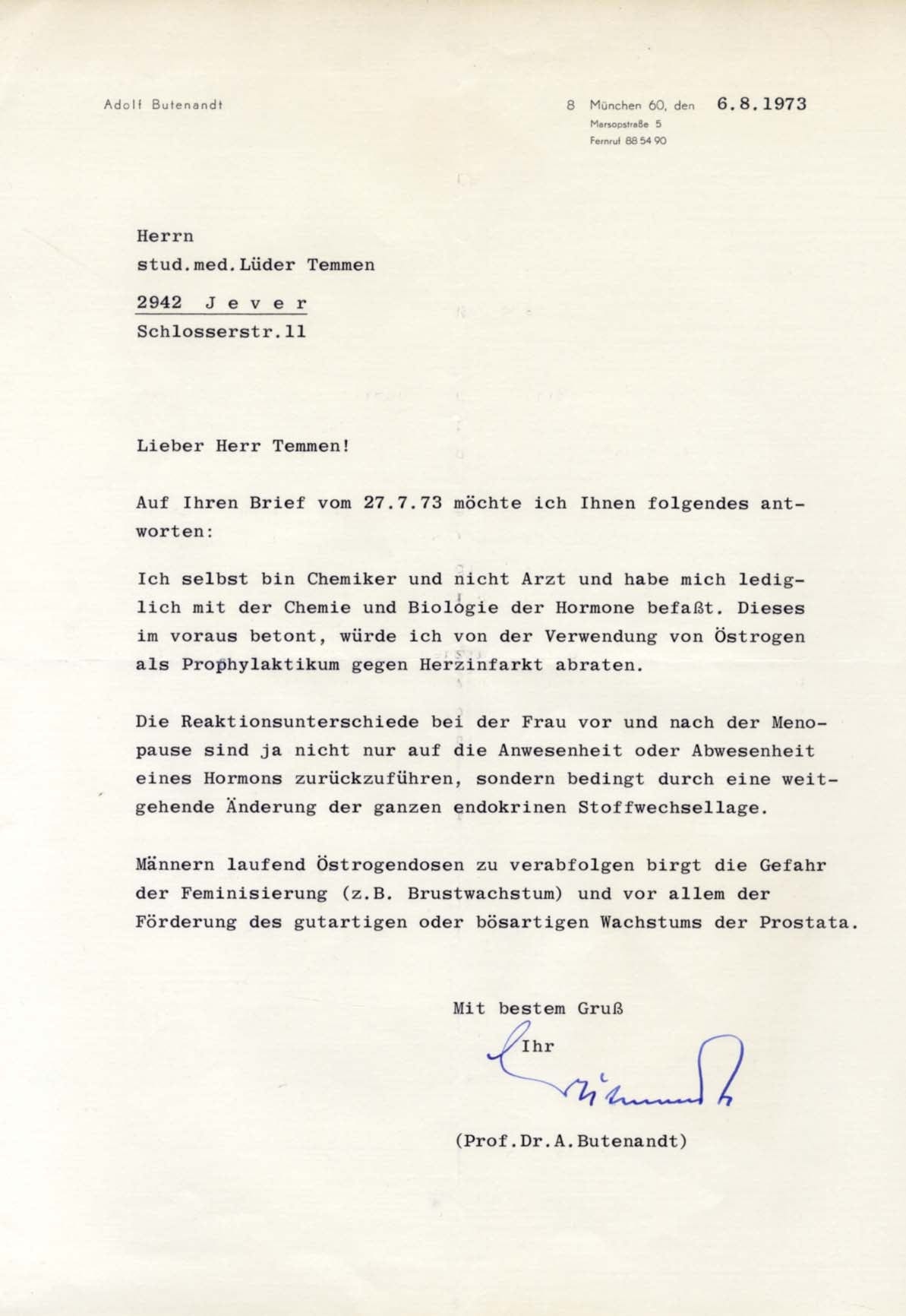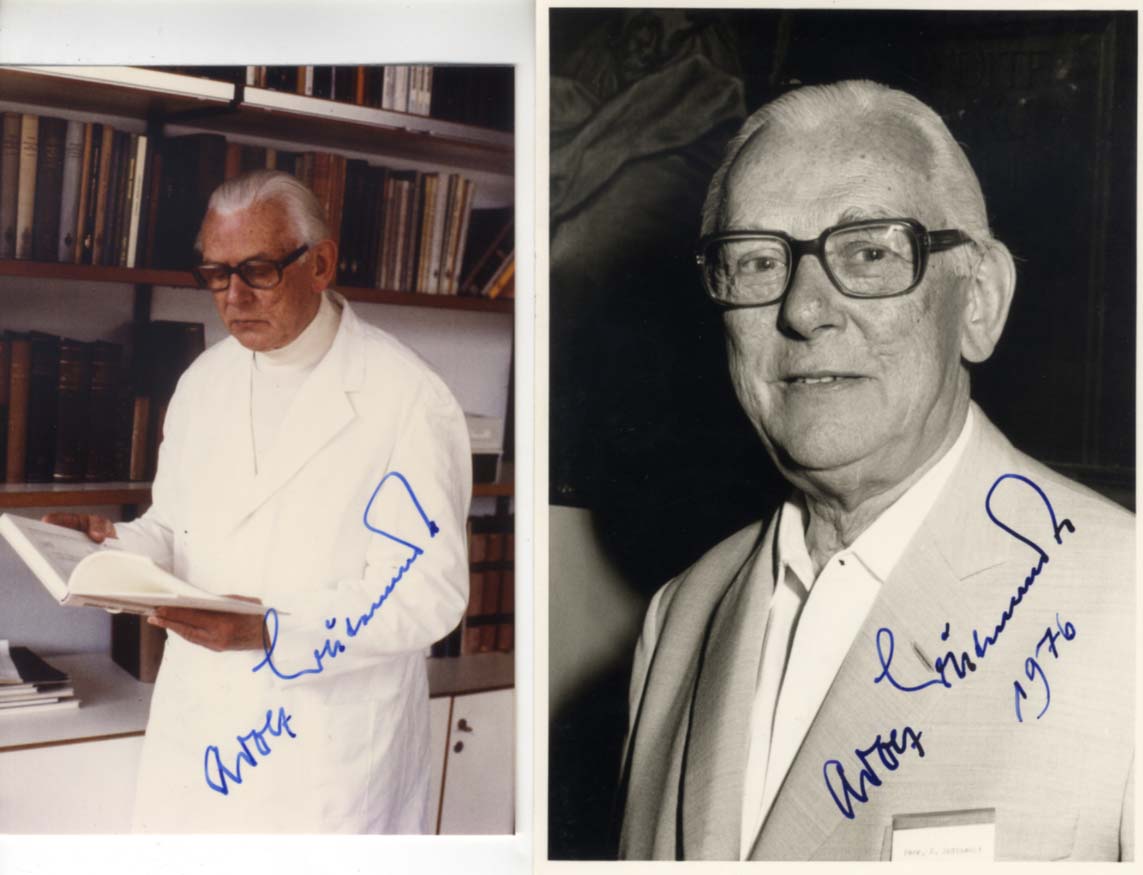Description
Typed letter signed, one page, 8,25 x 11,5 inch, personal stationery, Munich, 6.08.1973, in German, reply letter to Mr. Temmen - concerning the use of estrogen as a prophylactic against heart attack, signed in blue ink, with intersecting letter folds - in fine to very fine condition. Accompanied by two signed photographs of Adolf Butenandt, both about 3,75 x 5,5 inch, both signed in blue ink, in very fine condition.
In parts:
"[...] Ich selbst bin Chemiker und nicht Arzt und habe mich lediglich mit der Chemie und Biologie der Hormone befaßt. Dieses im voraus betont, würde ich von der Verwendung von Östrogen als Prophylaktikum gegen Herzinfarkt abraten..
Die Reaktionsunterschiede bei der Frau vor und nach der Menopause sind ja nicht nur auf die Anwesenheit oder Abwesenheit eines Hormons zurückzuführen, sondern bedingt durch eine weitgehende Änderung der ganzen endokrinen Stoffwechsellage. [...]"
Translated:
"I myself am a chemist and not a doctor and have only dealt with the chemistry and biology of hormones. Having said this in advance, I would advise against using estrogen as a heart attack prophylactic.
The differences in reaction between women before and after menopause are not only due to the presence or absence of a hormone, but are also due to a major change in the entire endocrine metabolism."
Further Information on the person
Profession:
(1903-1995) German biochemist, Nobel Prize for Chemistry 1939
Year of Birth: 1903
Certificate of authenticity
All of our pieces are sold with a Certificate of Authenticity. If a piece turns out to be wrong or if you do not like an autograph, you will get your money back for a lifetime.
Payment & Security
Your payment information is processed securely. We do not store credit card details nor have access to your credit card information.



